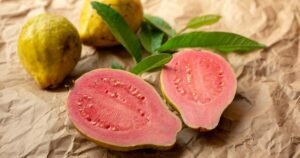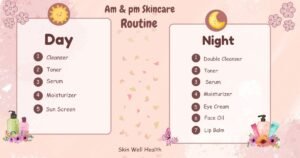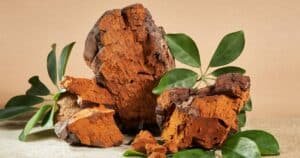Best Ways for Diet for Alopecia Areata
If you have Alopecia Areata, you know how upsetting it is to lose your hair. Loss of hair patches caused by an autoimmune disease can make a person feel bad about themselves and lower their confidence.
There may not be a treatment for Alopecia Areata, but eating well may help your hair grow and your overall health. This article will talk about the best ways to conform your diet when dealing with Alopecia Areata.
Millions of people around the world have alopecia, a disease that makes hair loss uncertain. There isn’t an easy fix for this condition, but eating a good amount of nutrients may help control the symptoms and make hair grow faster.
What is Alopecia Areata?
Alopecia areata is an autoimmune disorder in which the immune system attacks the hair follicles, resulting in hair loss. Factors like genetics, stress, and others can cause this disease. Researchers are investigating how certain nutrients can affect hair growth because of the link between food and hair health.
Symptoms
Bald Spots — People with Alopecia Areata frequently have bald spots on their heads. These spots may be different sizes and show up fast. They’re usually smooth and don’t show any signs of irritation or pain.
Hair Thinning — Alopecia Areata patients may have bald spots as well as hair thinning all over their skin. This can be very noticeable when you brush or comb your hair.
Changes in Regrowth — Another interesting thing about Alopecia Areata is that hair growth can be different from person to person. In some cases, hair may grow around bald spots, but it may fall out again later. People who experience this pattern of hair loss and growth can find it hard to deal with mentally.
Nail Abnormalities — The nails on your fingers and toes can also get alopecia areata. Some people might notice lines, pitting, or white spots on their nails. Although these nail problems aren’t directly linked to hair loss, they may be signs of the disease.
Also Read:
3 Alopecia Areata Regrowth Signs: According to Alopecian
Possible Causes
Researchers are still trying to find out the exact cause of alopecia areata. But most people believe it’s an autoimmune disorder and that genetics may play a role in how it develops. Stress and other things in the environment can make symptoms worse or start them.
The lifetime risk of developing alopecia areata in the general population is estimated at 2%, with a prevalence of approximately 1 in 1000.
The Role of Nutrition in Hair Health: Diet for Alopecia Areata
If you want to keep your hair in good health, proper nutrition is an extremely important factor. Protein, vitamins, and minerals are simply some of the nutrients that are necessary for the hair follicles to have in order for them to properly work. These essential nutrients that are necessary for hair growth may be provided through a well-balanced diet.
Can diet improve alopecia areata symptoms?
While research on the direct impact of diet on alopecia areata (AA) is ongoing, some evidence suggests potential benefits from incorporating certain dietary practices. However, it’s crucial to remember that diet alone isn’t a guaranteed cure or treatment for AA and should be part of a holistic approach guided by your doctor.
While more study needs to be done on how food directly affects alopecia areata (AA), there is some evidence that certain diets may be helpful:
According to a case study in 2020, a boy patient 8 years old with alopecia areata presented with hair loss. The patient was advised to eat foods that are high in zinc, vitamin D, and vitamin A. He was also advised to avoid dairy products and gluten. The patient’s hair grew back in full after 5 months of following the diet.
Based on the results of this case study, dietary changes might be useful in alopecia areata treatment. Diet may help alopecia areata patients grow more hair, according to the case study up above. Following a gluten-free and dairy-free diet high in vitamin A, zinc, and vitamin D resulted in full hair regrowth for the patient in this case study. It suggests the changes to his diet could have helped the regrowth of his hair.
Diet is an important component of AA treatment and prevention, but it isn’t enough on its own. Your doctor will guide you through it as part of a larger plan.
Also Read:
Find Your Solution: 11 Best Hair Vitamins for Alopecia areata
Foods to eat
For everyone, anti-inflammatory foods are important, but people with alopecia areata (AA) may benefit more from eating them. AA is an autoimmune disease that makes people lose hair.
Why are anti-inflammatory foods important for people with AA? Inflammation is the immune system’s natural reaction to damage or infection. However, chronic inflammation can damage healthy tissues, like hair follicles. Foods that are anti-inflammatory can help reduce inflammation and damage to hair follicles.
Several types of chronic diseases, like heart disease, obesity, type 2 diabetes, and some cancers, are linked to chronic inflammation. Eating anti-inflammatory foods such as vegetables, fruits and seafood can help reduce inflammation and maybe even lower your risk of getting these conditions and defending against them.
Also Read:
Best 9 Tips by Doctors: How to Alopecia Areata Self-Care
Here is a list of foods that may be helpful to people with AA. Before making any changes to your diet, you should always talk to your doctor or an experienced dietitian.
Fruits: Berries (blueberries, strawberries, raspberries, blackberries, cherries, cranberries), citrus fruits (oranges, grapefruits, lemons, limes), pineapples, peaches, papayas, melons (watermelon, cantaloupe), apples, pears
Vegetables: Leafy greens (kale, spinach, collard greens, swiss chard), bell peppers (red, yellow, orange), butternut squash, broccoli, tomatoes , mushrooms, cauliflower, carrots, garlic, sweet potatoes, asparagus
Whole grains: Quinoa, oats, brown rice, whole-wheat bread, barley, rolled oats, brown rich pasta, farro
Healthy Fats: Avocados, unweented coconut, nuts (almonds, walnuts, cashews), seeds (flaxseeds, chia seeds, pumpkin seeds), olive oil, nut butter
Protein sources: Lean meats (chicken, turkey, fish, beef), seafood, beans, tofu, eggs
Spices & Herbs: Turmeric, basil, ginger, garlic, cinnamon, cloves, cayenne pepper, rosemary, oregano, thyme, sage
Legumes: Beans (black beans, kidney beans, chickpeas), lentils, peas
Many of these foods are anti-inflammatory and antioxidant, which means they can help keep inflammation under control and boost the immune system. To get the most health benefits from these foods, you should add a variety of them to your diet.
Also Read:
How to Stop Alopecia Areata from Spreading
Foods to avoid
Foods that are processed and high in sugar, trans fats, and artificial ingredients can make the body more inflammatory. Experts think that inflammation can make autoimmune diseases like alopecia areata worse by making signs more serious.
Because alopecia areata is an inflammatory condition, individuals should avoid foods and drinks that are filled with inflammation, which can make alopecia areata worse.
Wheat, barley, rye, and sometimes oats all contain gluten, a protein that may set off an immune system response in people with celiac disease. In addition to affecting general health, including hair development, this reaction harms the small intestine, which in turn affects the absorption of nutrients.
So, it’s possible that gluten-containing foods aggravate alopecia areata symptoms. It’s believed that a gluten-free diet could help people with AA grow their hair faster.
If you want to make a diet plan for alopecia areata, it’s best to talk to a trained dietitian first. They can help you arrange these options and, if needed, make a healthy diet for you.
Well, if you have alopecia areata, you should avoid and stay away from these following foods and drinks to reduce alopecia areata symptoms:.
Processed foods: Packaged snacks, convenience foods, sugary drinks (sodas, juices), fast food, processed meats (hot dogs, sausages, deli meats).
Sugary drinks: Soda, juice, sweetened coffee/tea drinks
Red meat: Lunch beef, lamb, pork (in moderation)
Refined carbohydrates: White bread, pasta, pastries
Gluten foods: Wheat, barley, breads, cakes, tortillas, crackers, wraps
Dairy: Cheese, sweetened yogurts
Although studies on the relationship between diet and alopecia areata are still ongoing, some results suggest potential benefits when following specific dietary routines. But it’s important to keep in mind that nutrition isn’t a magical cure or therapy for AA; in fact, it should be a part of a comprehensive plan that your doctor guides.
Also Read:
Best 12 Natural Home Remedies for Alopecia Areata – SWH
Conclusion
Some people with Alopecia Areata find it hard to deal with situations. A healthy, well-balanced diet can help your hair grow back and make your life better.
People who have Alopecia Areata can improve their hair health by focusing on the whole person. This includes changing their diet to take anti-inflammatory foods and to avoid inflammatory foods that make their symptoms worse, making changes to their lifestyle, and getting professional help.
FAQs
Q1. Can diet alone cure Alopecia Areata?
Diet can help keep hair healthy, but alopecia areata is a challenging disease. Talk to a health care provider for a complete plan.
Q2. Are there any specific foods to avoid?
To reduce inflammation, don’t eat too many sticky snacks, heated foods, or too much caffeine.
Q3. How soon can I hope to see results from beneficial changes?
Results can be different, but in a few months, changes that are clearly balanced and helpful may become clear.
Q4. Can I take over-the-counter supplements without a docter’s advice?
Before taking any new supplements, it’s best to talk to your doctor.
Q5. What role does hydration play in hair health?
Hydration is beneficial for hair health because it reduces inflammation and improves hair structure.










